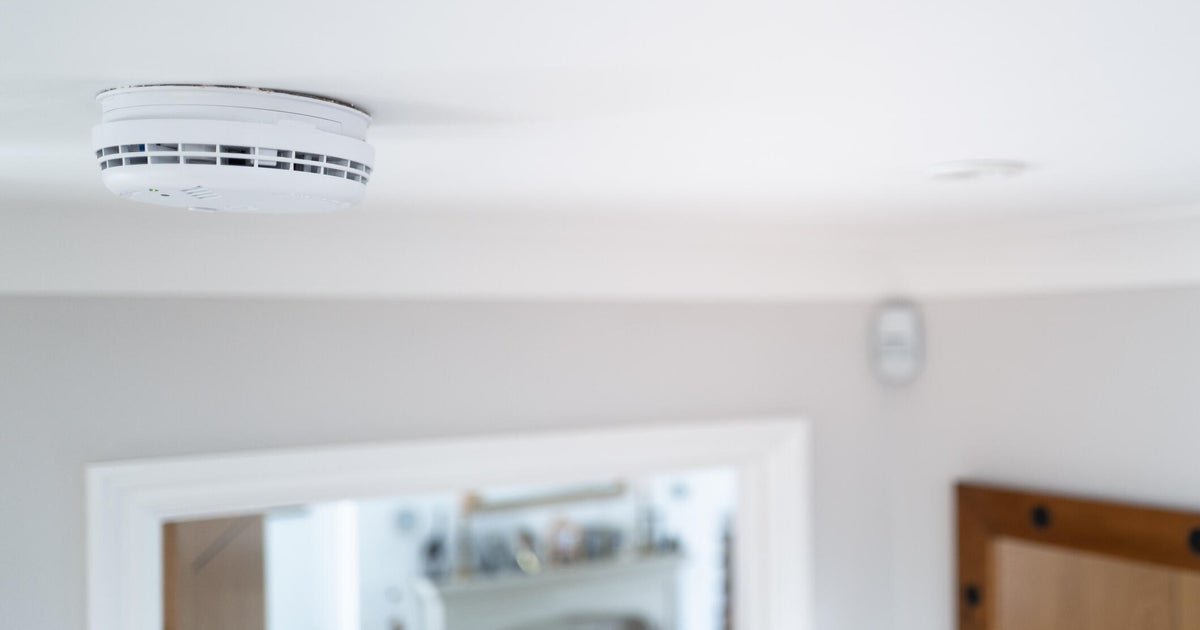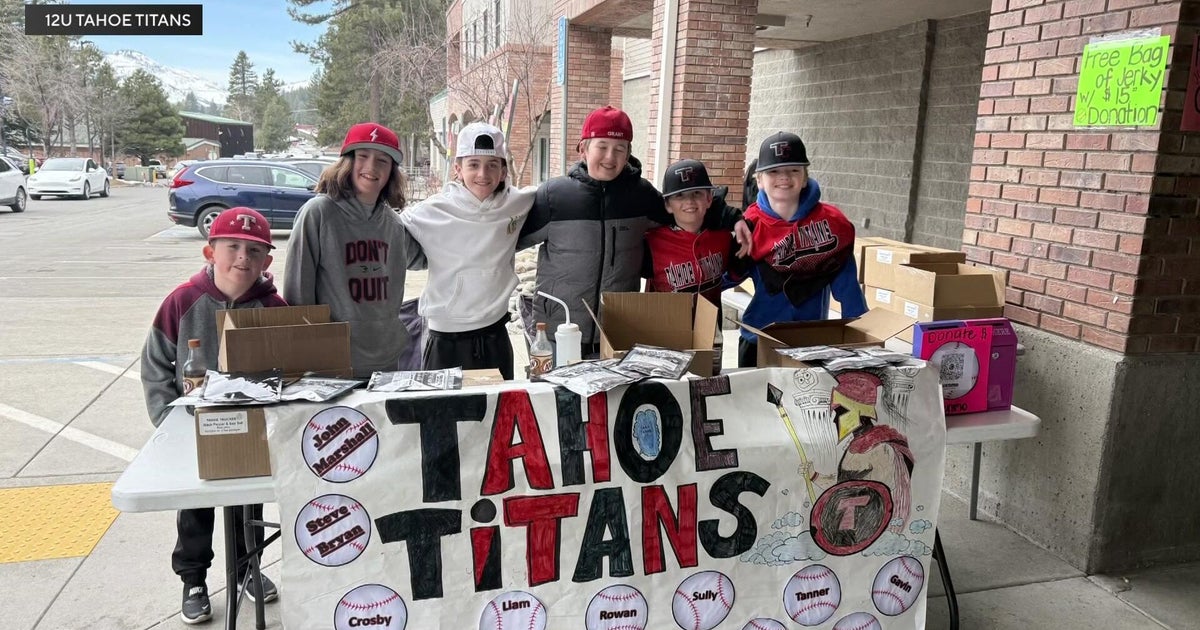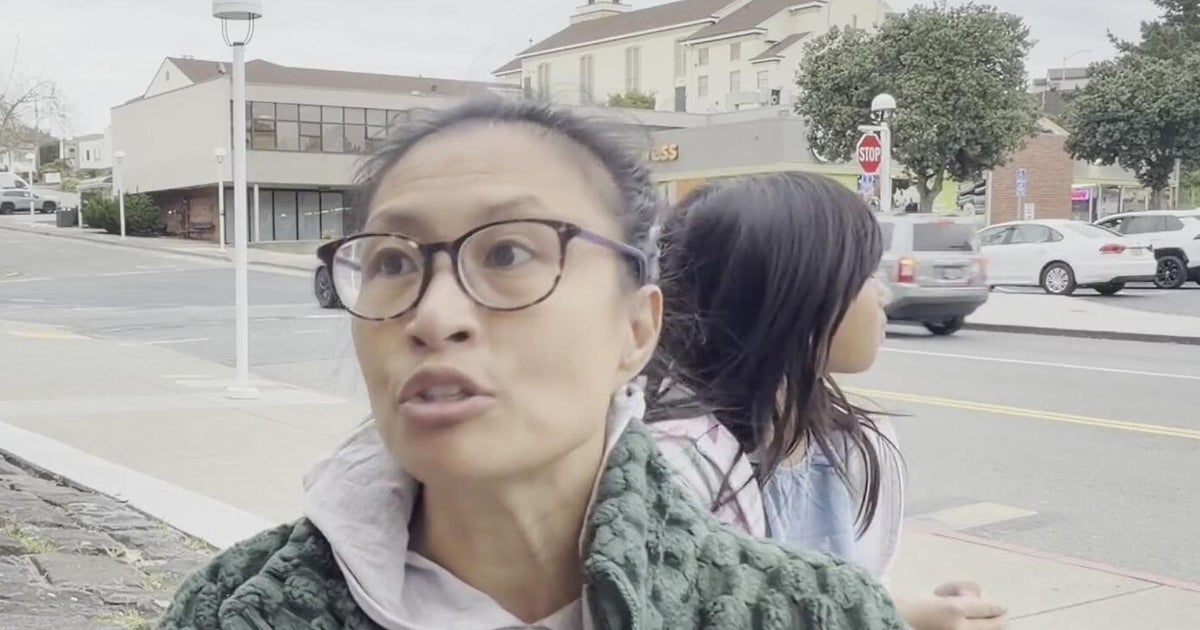Study Casts Doubt On Music Therapy For Kids With Autism
By Susan Scutti
PHILADELPHIA (CNN) — Ethan Jones thinks he was playing the piano.
"I was with someone, and we were in a room, and we were just playing a piano," Jones, 23, a resident of New York, said of his first music therapy session.
Mostly, he remembers vibrations, sounds. He was 3 years old.
"I like sounds," he said. "Unless it's an alarm that you hear on a police car, ambulance or fire truck ... it just makes my heart beat fast."
He likes the physical experience of music as well as the sound. This is true for singing, too: "Sometimes, I sing to myself or I sing karaoke," he said.
"I just like harmonies."
Jones, who has autism, "sang before he could speak," said Maria Hodermarska, a licensed creative arts therapist and a registered drama therapist who teaches in the graduate program at NYU Steinhardt School of Culture, Education, and Human Development. "You see this actually in people who have had a traumatic brain event, like a stroke, where the capacity for singing remains but the speech center is impacted because they're two different centers of the brain."
Hodermarska is not only a therapist, she is Jones' mother.
"That part of his brain was developed and functional," she said. Even though her son could sing a few lines from a Beatles song, he couldn't make even the most simple of requests like "I would like a sandwich."
"It was the singing that led him into speech," Hodermarska said.
The point of music therapy for people with autism changes as a child grows up, observes Hodermarska, though she acknowledges that the qualitative benchmarks -- such as whether and how much music therapy improves the social skills of a person with autism -- may be "challenging to measure."
A new study published Tuesday in the Journal of the American Medical Association attempts to do exactly that.
Comic Artist Creating New Superhero With Autism
Measuring success
In the study, Norwegian researchers found that music therapy plus standard care for children with autism spectrum disorder did not improve their symptom severity more than standard care alone.
Led by Christian Gold of the Grieg Academy Music Therapy Research Centre in Bergen, the study looked at 364 children with autism. Half were randomly assigned to enhanced standard care for five months and the remaining 182 to enhanced standard care plus improvisational music therapy for five months. The children ranged in age from 4 to 7 years old, and the study was conducted in nine countries.
Enhanced standard care consisted of the locally available usual care for children with autism, plus parent counseling to provide information and discuss concerns.
"This was by definition a varied category," Gold said, explaining that the point of the study was pragmatic in that it was seeking to determine "real world" effectiveness. "Most commonly, enhanced standard care included speech and language therapy, communication training and sensory-motor therapy."
In improvisational music therapy, trained music therapists usually sing or play music with children, attuned and adapted to the child's focus of attention.
Donna Murray, vice president of clinical programs at Autism Speaks, said that in the US classes she's observed, musical therapy is typically "child-led music," in which a child and therapist create music together. "So let's say the child picks up a drumstick and starts beating on the drum, and the therapist might join in. It's a creative joint experience, if you will."
After five months, the researchers found that the amount of improvement in symptom severity for both groups was small.
"Children get a lot of things simultaneously, and sometimes that could be too much," Gold said. He noted that he and his team observed how the children who received music therapy along with enhanced standard care seemed "to reduce, a little bit, the other therapies." This natural "compensation" meant that in the end, the study made almost a "head-to-head comparison."
Finding no significant differences in social measures between the two groups, the study does not support the use of improvisational music therapy for symptom reduction in children with autism spectrum disorder, the researchers concluded.
"People with autism, for as long as the term 'autism' has existed, many of them have been described as having a special interest in music," Gold said. "For those who have that interest, they should have the right to pursue that interest, whether or not it's called music therapy or just music, whether or not it is in a one-to-one setting or some other kind of setting, whatever fits."
The question is, he said, what is the right amount of therapy and right mixture for each child?
"We need to consider the everyday life of those kids as well. They're also just kids, not just kids with autism. They need to have an ordinary life as well," he said. Gold added that since autism is also a personality trait, and not just a disorder, it's necessary to find the "right social context for children, where autistic symptoms are accepted and understood, instead of trying to remove those symptoms."
Though more research is needed, he believes music therapy might work best for children with autism who don't have a lot of verbal abilities and who may have multiple problems "because it uses music rather than words."
"It might be a good option for only those kids on the lower-functioning of the spectrum," Gold speculated.
Strengths and weaknesses
"It's a strong study if you believe in music therapy as a medical intervention," said Kenneth Aigen, interim program director and associate professor of music therapy at NYU Steinhardt, who was not involved in the research. Another strength is the large number of participants, which are rare in musical therapy studies, he said.
However, the study was weak, Aigen said, "if you think of music therapy in a more humanistic sense" as providing people the opportunity to enrich their lives. And the greatest weakness may be that the researchers lumped together "a whole host of practitioners from many different cultures, countries and methods and assuming that what they're doing is similar enough to each other in order to warrant being evaluated as the same thing."
"Music doesn't have a generic structure like medication does, and it doesn't have a universal set of procedures like a surgical procedure does," Aigen said.
He also criticized the premise "that the focus of therapy should be to make people less autistic," Aigen said. "That's not how autistic people look at their autism anymore. That's not the kind of help they want for themselves."
Murray, who ran an autism program that included music therapy before joining Autism Speaks, said many interventions for children with autism may be beneficial even if they show mixed results in clinical trials. "This (study) falls into that bucket but it's not alone," said Murray, who was not involved in this research.
Among the possible flaws of the study, she said, "I wonder about five months: When you're looking at general ability, it's not a super long time."
If you can engage a child with autism with "something appealing like music, at a minimum, that's a great start for some sort of social interaction," Murray said. She added that for those children who liked music, she "did find the children tended to enjoy and be more -- at least on appearances -- be more present and socially engaged."
"Sometimes, when children are actively engaged like that, that's when you sort of open the doors for learning," she said. Still, the results don't provide the evidence to say that music therapy "should be a go-to" for improving social and attention abilities, she said. "I don't want families to ever feel like their child is going without if the evidence is not there." She stressed, though, that it couldn't hurt.
"Every parent knows their child," Murray said. "If this is something that really engages their child, then I would say this could certainly be something on their menu of choices of activities."
US Drug Overdose Deaths Reach New High
Communication through music
Hodermarska said that for her son, "it was clear from the very beginning that music was a way in to him and for him."
Jones started music therapy at Nordoff Robbins Center for Music Therapy in a group of three. In those early days, the process was about "learning to communicate, to sort of string those sung sentences into language, to be able to communicate with peers," said Hodermarska.
Around his third year in music therapy, Hodermarska and Jones' dad split.
"All he wanted was for his musical therapist to sing to him," said Hodermarska, who believes that "symbolically," there a was a lot there "about being parented, about being cared for, about having a safe place to be held in a time that was very turbulent for him."
He then became very interested in how to play different instruments, and his music therapist worked with him on playing chords and learning the essential skills of making music.
Jones' final phase of music therapy was a collaboration on a play with his music therapist, his mother and others.
At this point, he was "emerging into his adult life, with the capacity to write music, to play music, to communicate core ideas through music," Hodermarska said.
Jones wrote a song about being an outsider and another about attaining the outward measures of adult life, including having a girlfriend.
Though music therapy continued until he was 16, Jones says, "it was always the same." Describing what appeals to him about music therapy, Jones says, "moving around playing instruments, any instrument. Doing anything I want to do as long as it relates to music."
Though he now plays only the guitar, he likes all types of music and all kinds of instruments.
"They each have different capabilities, different sounds," he said. With drums, "you can do a lot with beats," including laying your hands on the drum and feeling it pulse.
"Every child, every human being, has creative capacity," Hodermarska said, observing that capacity may be visual, musical, theatrical or something else. Finding the right therapy begins with parents paying attention and then going to the American Art Therapy Association website to find providers in their state.
Hodermarska acknowledges, though, that "parents of children with disabilities, we're very prone to snake oil salesmen." They are "vulnerable," especially since the cause of autism is not known and parents may feel that they themselves "caused" it. Still, there are places to turn for help without fear.
"We all have limited means, but I think local universities and young people have been a great source for our family of finding and building connections," Hodermarska said. She added that music therapy is not snake oil -- it does not promise a cure, instead offers a "way through the challenges" -- and her family was lucky to have access to Nordoff Robbins.
"He would not be the person he is today if not for the support of these amazing clinicians over his young life," she said of her son.
The-CNN-Wire ™ & © 2017 Cable News Network, Inc., a Time Warner Company. All rights reserved.







